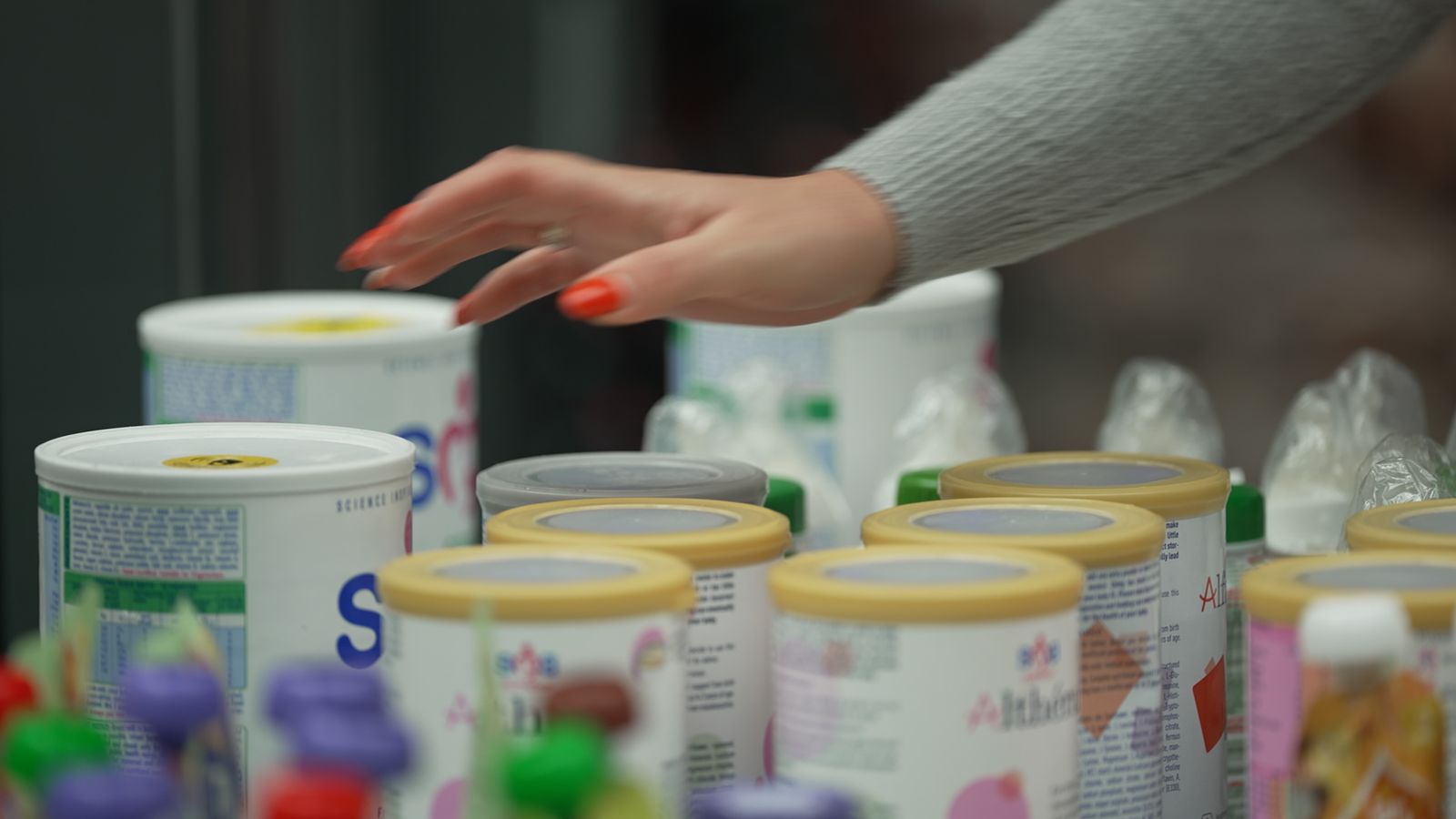A Labour government would intervene to alleviate the “heartbreaking” baby formula pricing crisis, the shadow health secretary has promised.
In May, Sky News uncovered the extent of the desperate measures some parents are taking to feed their babies due to the rising costs of infant milk.
One father explained how he was regularly stealing baby formula or buying it on the black market.
Others have told us about watering down feeds, buying open tins on Facebook or substituting formula for condensed milk.
Now Wes Streeting MP has told Sky News that if Labour came to power, he would move to abolish “outdated” restrictions around the marketing and promotion of first infant milk.
Current restrictions mean retailers can’t run discount promotions on first formula milk, and customers can’t use store loyalty points or vouchers to buy it – which places it in the same category as tobacco or lottery tickets.
The restrictions were designed to help promote breastfeeding as the first and best choice for families.
Wes Streeting says people are ‘upset and hurt’ by Labour’s initial reaction to Israel-Hamas war
Sir Keir Starmer meets Muslim MPs as tensions reignite over Israel-Hamas war stance after mosque visit
Adam Boulton: Double by-election defeat leaves Tories asking is this a re-run of 1992 or 1997?
Mr Streeting said he fully supported breastfeeding but added a Labour government would take action on baby formula to help families.
He said: “The idea that this is a product that mums would be shoplifting because they couldn’t afford it for their babies is a heartbreaking thought.
“You have the food banks that report they’re having to ration baby milk because they’re running out.”
He added: “You hear harrowing stories of mums that are watering down infant formula to try and make it last that bit longer, even though it’s not particularly safe for the baby.
“In that context, the idea that we would stick to what I think are now outdated rules banning people from being able to use milk tokens, food bank vouchers, coupons to make baby milk more affordable, I just think it’s just completely wrong-headed in this cost-of-living crisis.”
Please use Chrome browser for a more accessible video player
Data from First Steps Nutrition shows the cheapest brand of formula milk has risen in price by 45% in the past two years, while the average hike is 24%.
The SNP’s Alison Thewliss MP, chair of the All Party Parliamentary Group on Infant Feeding, has led calls for a price cap for baby formula – an idea that Mr Streeting said he would also be willing to look at.
The Shadow Health and Social Care Secretary added that retailers also had a role to play: “I think supermarkets have got to do everything they can to make the price of the shop for families more affordable.
“They should look at particular goods like infant formula milk, like baby food, those real essentials and think about how they keep an eye on value for money for families.”
Be the first to get Breaking News
Install the Sky News app for free
Labour’s pledge to intervene was not welcomed by everyone.
Several infant feeding specialists pointed out that there were other ways of helping families, including increasing the value of Healthy Start vouchers, which no longer cover the cost of a tin of formula.
Mr Streeting said his initiative would be a relatively simple measure to help families “so that people have children growing up in this country in the 21st century aren’t experiencing Dickensian levels of destitution and poverty”.
Read more:
Baby milk ‘crisis’ amid surge in families struggling to feed infants
Inside the baby banks rationing formula milk to one tin per family each week
The founder of Hartlepool Baby Bank, Emilie De Bruijn, said: “Demand for us at Hartlepool has grown by almost a third since Sky News first visited in May.
“Some families are desperate; we are struggling to keep up with demand.
“I’d welcome whatever can be done to make these impossible situations better for parents.”
While work is underway in some parts of Scotland to provide more financial help for families, the Westminster government has not yet taken specific action despite growing calls for action.
The Department for Health and Social Care has previously said: “We recognise the impact rising prices are having on families, which is why we are providing significant support worth on average £3,300 per household, including holding down energy bills, uplifting benefits and delivering direct cash payments.”







